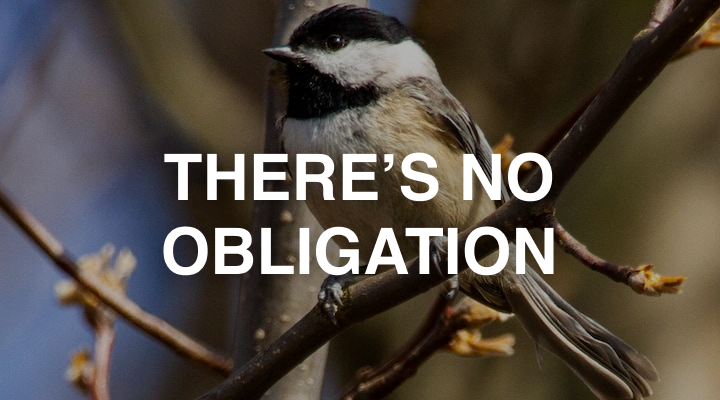About a year ago...
Sarah and I were on the couch together musing about what we hope our kids are like. To be clear, we don't plan on becoming parents anytime soon. We just think about parenting a lot.
Over the course of the conversation, we just started riffing about the opportunities and experiences we'd want our kids to have. I can't remember most of the things we listed. But at one point, Sarah said, "I want our kids to take piano lessons". And this statement, for some reason, snapped us out of our daydream.
We realized in that moment that the traits we were hoping our future children possessed were traits that we either had or wanted to have. Sarah wanted "our kids to take piano lessons" because she always wanted to learn how to play the piano.
It was interesting to see how, even before having kids, we were projecting our own values and insecurities onto them. At the end of that conversation we decided that if we were going to expect our future kids to emulate any behavior, we needed to be models of it.
A few days ago...
I was standing in the doorway of our kitchen looking out at our living room; listening to Sarah play The Holly and the Ivy on the small keyboard we put in there when she started taking piano lessons a few months after that conversation.
As Sarah's fingers moved across the keys, I thought about how she had turned this dream into a reality. She went from wanting to have done the work to doing the work. As someone with tons of ideas for things I "want to do" - this was inspirational.
And I began thinking about what this difference was between wanting to do and...
Wanting to have done.
I think most of the time when we say, "I want to do that" what we're really saying is, "I want to have done that". We're wishing for a different world rather than declaring a willingness to work. And I think acknowledging this difference is important.
I'm in a constant state of coming up with new project ideas. This week, I had ideas for two books, two SaaS apps, a podcast, a newsletter, and 6 blog posts. You can ask Sarah, it's a problem.
Because as each concept pops into my brain, I'm like a moth attracted to a porch light. I start buzzing full of energy and circling around this shiny object that I can see the outline of but am too blinded by my own lack of understanding to make out its details. So, I go closer and closer to the source.
And as I do the idea gets larger and larger until it feels like I've touched the light bulb, burnt myself, and come hurtling out of the sky - back down to reality. I realize the resources and effort the project will take to complete, and I start making excuses.
I don't have [the time | the money | the skill | the connections ...] that I need.
Bullshit. These are just brick walls that I imagine to give myself an excuse to not put in the work for a project. In reality, I just don't actually want to do it. I want to have done it. And accepting that truth is freeing.
I should feel no obligation to my ideas. Just because a project pops into my head - it doesn't mean I have to act on it. And even if the world I've imagined feels real and tangible in the moment - recognizing that it's not makes all the difference. Thoughts are just thoughts.
So now, when I have a new idea - before I get lost in its glare, scold myself and fall out of the sky - I write it down and fly on. To mix metaphors, I'm no longer a moth, but a chickadee. I keep a map of my imagination's terrain. I take note of landmarks and mark the location of possible treasure, but then I keep moving.
I know how to go back to that spot if I ever want to, so there is no reason to beat myself up about not stopping to dig right then and there. Flying away from the idea also gives me a chance to gain perspective and gauge potential. It's easy to be called toward a shiny siren while close to it - which makes it's value more telling if you continue to get called back.
Thinking about my ideas this way has been a game changer. Because I'm more decisive about focusing my time and attention because I don't feel like I'm constantly leaving opportunities behind. I'm okay calling my ideas what they are: things "I want to have done".
Because it then makes it more powerful when I actually declare something that "I want to do". And the difference between them is simple.
The key is making a plan.
There was an important beat Sarah took between wanting to have learned how to play piano and learning the piano. She made a plan. She decided how she was going to take action.
The how aspect of this is crucial. All too often, as we're trying to inspire action in ourselves, we focus way to much on mentality and motivation. We try to hype ourselves up and say things like, "This time, I'm serious - I'm going to do this."
Motivation without a map is what leads us to meander without meaning. We need a direction to move in to make progress.
Note that I'm not talking about setting goals. Goals are ways of measuring progress - not making it. A plan is a series of tasks, scopes, steps - things that are actionable.
Sarah's goal to "Learn Für Elise on the piano" is just a more specific want to have done. Her to do - her plan - was, "Reach out to Chelsea and ask for piano lessons". Stating that clear first action is what enabled her to complete it and start building momentum.
For me, this looks like making a concious decision to fly back to an idea and get a lay of the landscape. I write Pitch documents, content ideas, and business plans. I survey for unkowns and obstacles along the journey and then add actual tasks to my todo list.
Things that are on my todo list are the things I actually want to do. If it's not a task, an actionable step, a means to an end - it's just a want to have done.
What do you think?
I hope you enjoyed this quick little essay. If you did, please let me know on Twitter. I'd love to hear your thoughts on this topic and if any of the concepts I shared were helpful.
Until next time.

